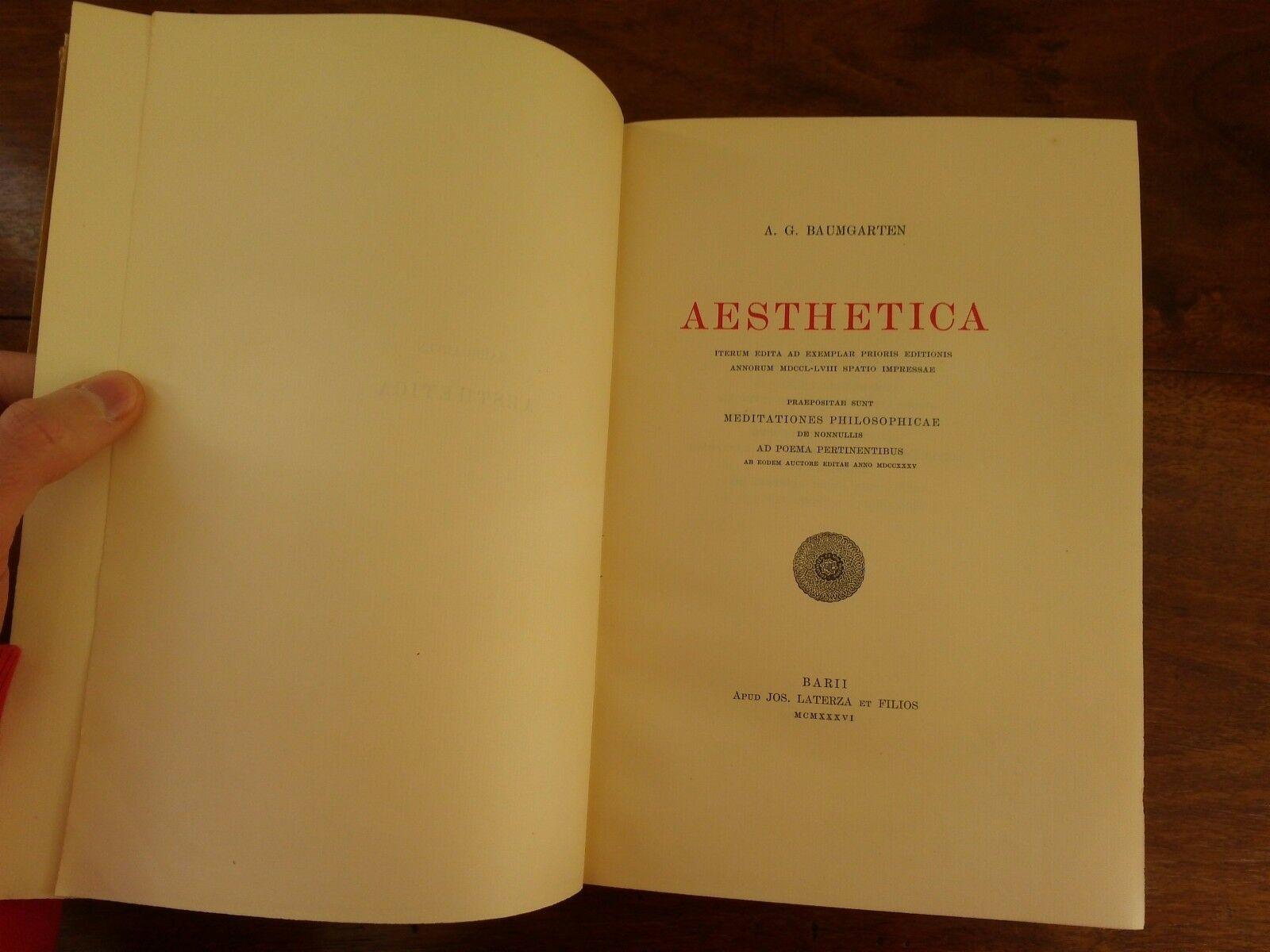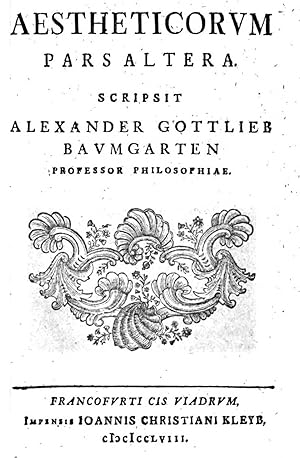

The good is the perfect attained by the moral will." Tolstoy, however, contradicted Baumgarten's theory and claimed that good, truth, and beauty have nothing in common and may even oppose each other. Truth is the perfect perceived by reason. Tolstoy opposed "Baumgarten's trinity - Good, Truth and Beauty…." Tolstoy asserted that "these words not only have no definite meaning, but they hinder us from giving any definite meaning to existing art…." Baumgarten, he said, claimed that there are three ways to know perfection: "Beauty is the perfect (the absolute) perceived by the senses. In 1897, Leo Tolstoy, in his What is Art?, criticized Baumgarten's book on aesthetics. For Kant, an aesthetic judgment is subjective in that it relates to the internal feeling of pleasure or displeasure and not to any qualities in an external object.

Nine years later, in his Critique of Judgment, Kant conformed to Baumgarten's new usage and employed the word aesthetic to mean the judgment of taste or the estimation of the beautiful. We would then take the name partly in its transcendental meaning, and partly in the psychological meaning. Among the ancients the division of cognition into aisthētá kai noētá was quite famous.) The other alternative would be for the new aesthetic to share the name with speculative philosophy. (In doing so we would also come closer to the language of the ancients and its meaning. One of these is to stop using this new name aesthetic in this sense of critique of taste, and to reserve the name aesthetic for the doctrine of sensibility that is true science. Because of this it is advisable to follow either of two alternatives. It is, rather, our judgment of taste which constitutes the proper test for the correctness of those rules or criteria. Hence they can never serve as determinate a priori laws to which our judgment of taste must conform. For, as far as their principal sources are concerned, those supposed rules or criteria are merely empirical.

He hoped to bring our critical judging of the beautiful under rational principles, and to raise the rules for such judging to the level of a lawful science. They are doing so on the basis of a false hope conceived by that superb analyst Baumgarten.

The Germans are the only people who presently (1781) have come to use the word aesthetic to designate what others call the critique of taste. In 1781, Kant declared that Baumgarten's aesthetics could never contain objective rules, laws, or principles of natural or artistic beauty. Aesthetica (1750-58) is a work by German philosopher Alexander Gottlieb Baumgarten.


 0 kommentar(er)
0 kommentar(er)
